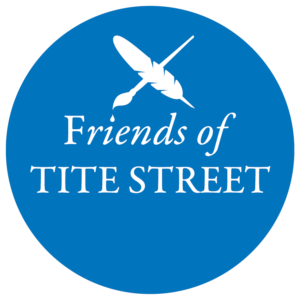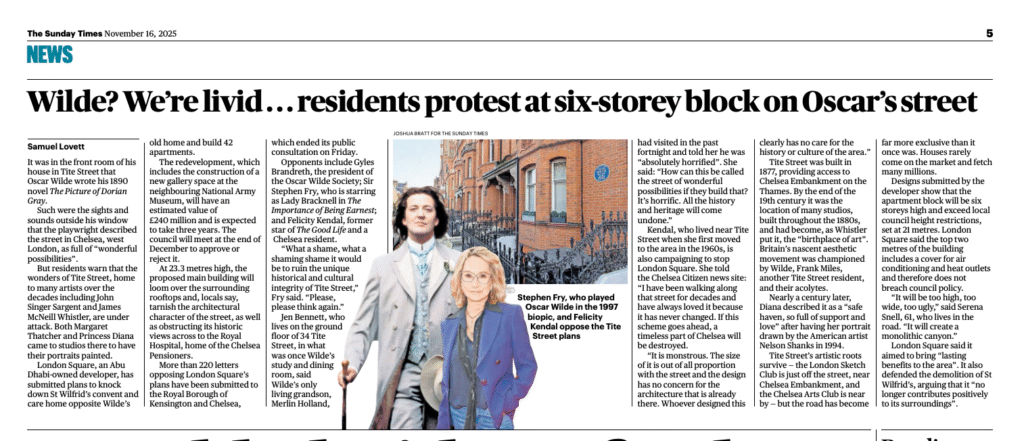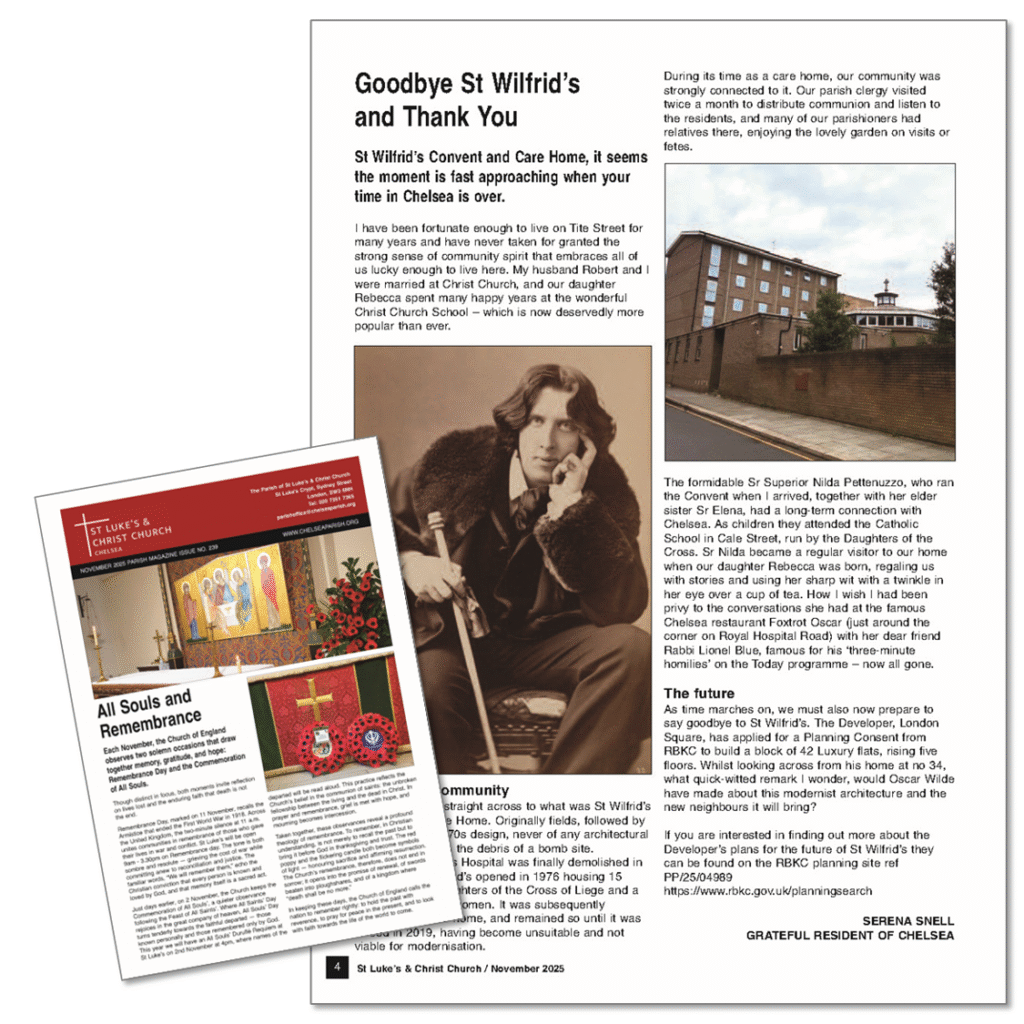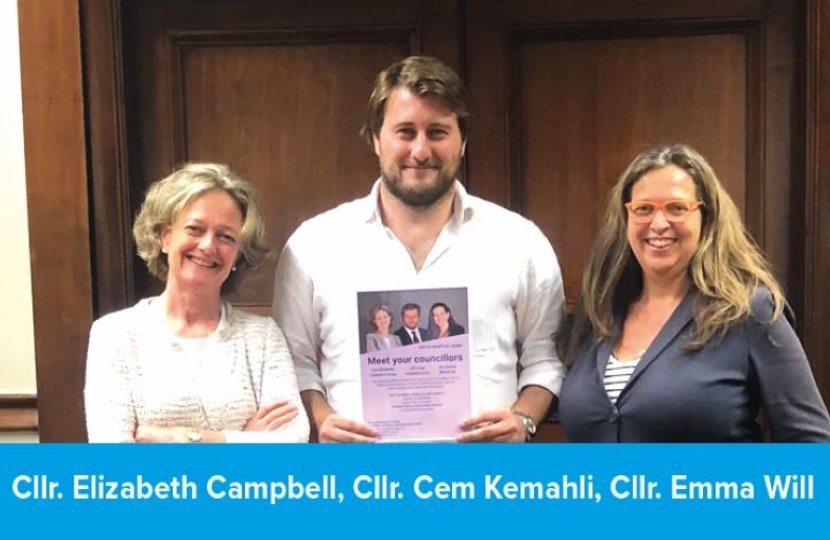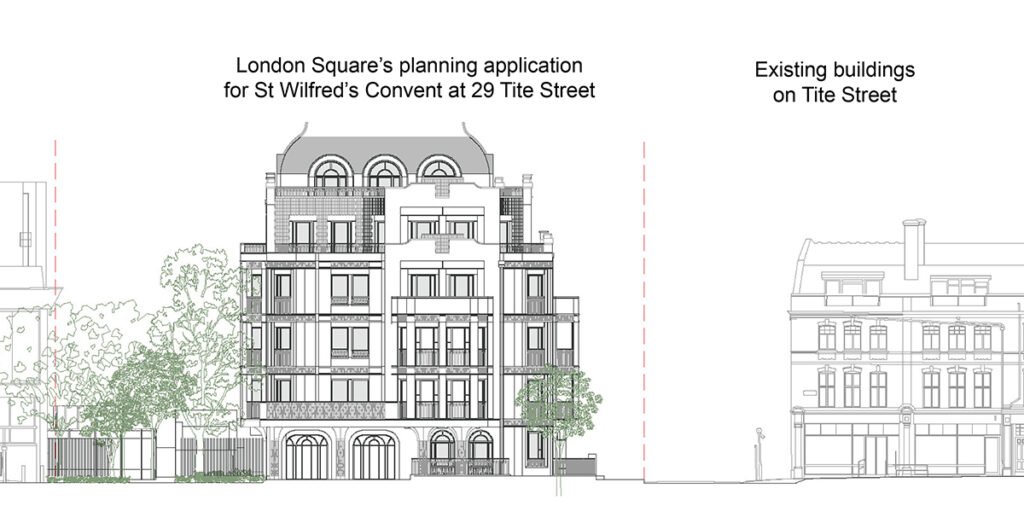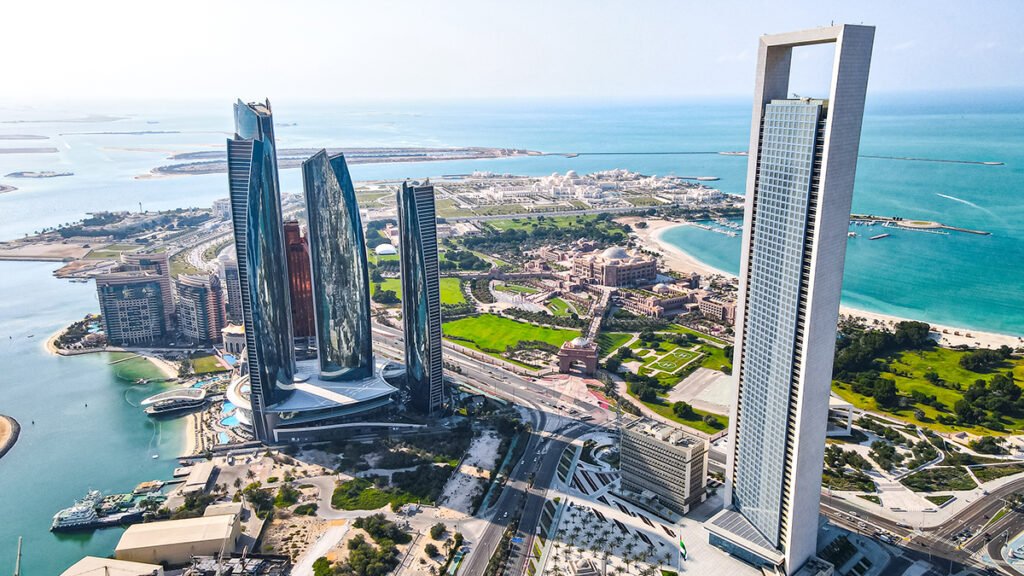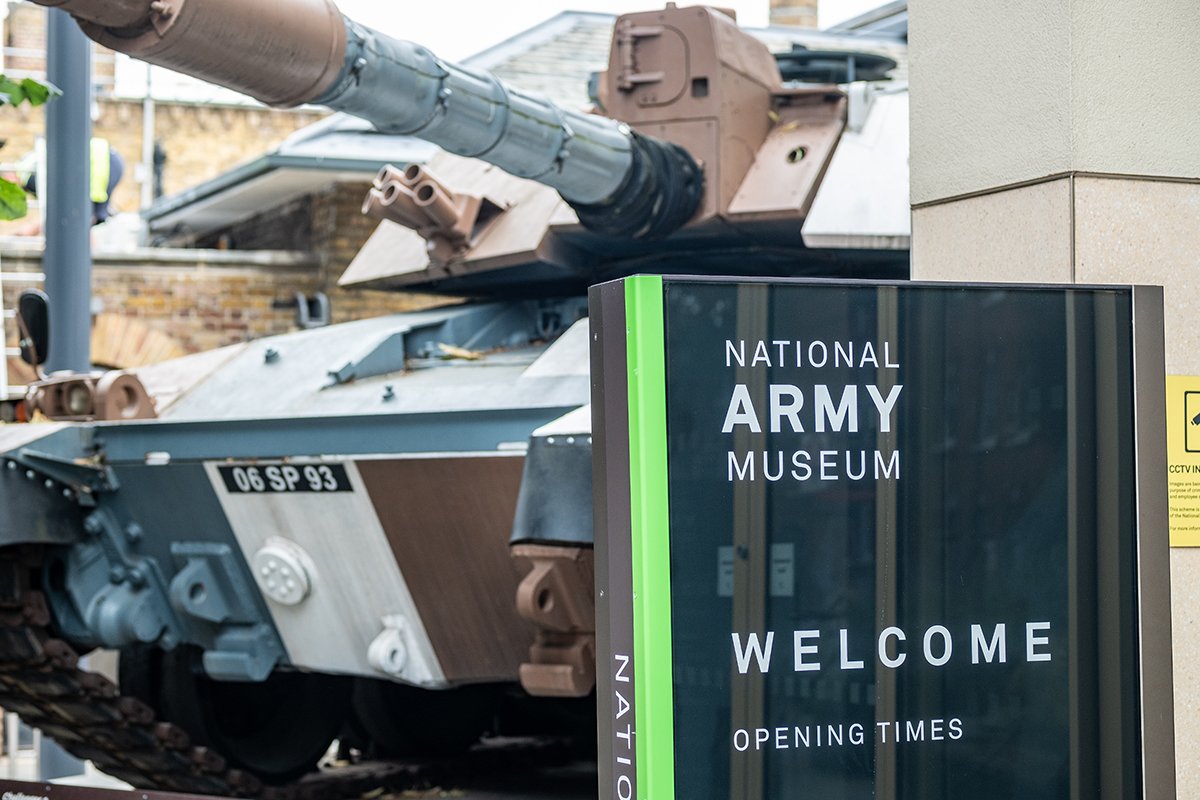
The National Army Museum preserves our national history; the Friends of Tite Street safeguard its cultural soul. Both deserve room to breathe.
The National Army Museum is one of the crown jewels of Chelsea – a thoughtful custodian of Britain’s military story. Founded at Sandhurst and moved to its current home beside the Royal Hospital in 1971, it stands as a tribute to service, duty, and tradition. Inside, visitors walk through centuries of courage and complexity, told with care and dignity.
Just around the corner lies another form of history – quieter, perhaps, but no less significant. Tite Street is where art and literature, wit, and rebellion once reshaped Britain’s cultural identity. Wilde, Whistler, and Sargent lived and worked here, giving Chelsea its place not just on the map, but in the national imagination.
The Friends of Tite Street, in our modest way, try to do for this cultural heritage what the Museum does for our military one: to keep it alive, understood, and worthy of respect. Both stories – martial and artistic – are chapters in the same national narrative. Each deserves protection not only for what it preserves, but for the surroundings that give it resonance.
It is easy to see why the National Army Museum wishes to improve its facilities; its ambitions are admirable, and we support them wholeheartedly. The Museum deserves its new gallery – but not at the cost of erasing the heritage that gives its setting meaning. Is that really a price worth paying?
That price should not fall on Chelsea’s history. Aldar Properties – which is listed on the Abu Dhabi Securities Exchange, with the United Arab Emirates’ sovereign wealth fund as its largest shareholder – has the means to pay it. Instead, through its UK arm, London Square, it is asking the street and the borough to absorb the cost of a misjudged overpayment for the site.
The Royal Borough of Kensington and Chelsea also has a choice to make. It calls itself a guardian of heritage and culture – and rightly so. That guardianship means standing firm when global capital seeks to build its balance sheet at the expense of local character.
With a little restraint and imagination, everyone could win: the Museum could flourish, the street could breathe, and Chelsea could remain the living tapestry of history it has always been.
